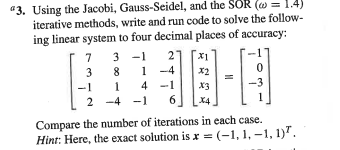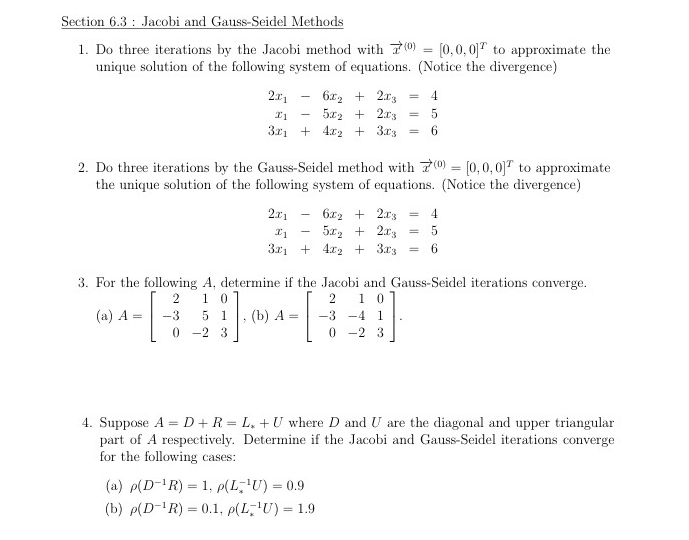

What makes the Jacobi and Gauss-Seidel methods work These.

I've changed the formulation of dist several times and made sure it produces the results I need. Keep in mind that our first example might involve 10,000 linear equations in 10,000 variables. I've tried changing the location of initialization of S thinking it would impact the run by avoiding recursive explosion. ` RuntimeWarning: overflow encountered in long_scalarsĪnd: RuntimeWarning: invalid value encountered in powerĭef GaussSeidel(A_in,x0,b_in,tol=1E-5,max_step=100):Ī=np.array(, ],dtype="f") These sample points and weights correctly integrate polynomials of degree 2 n 1 or less over the interval 1, 1 with weight function w ( x) ( 1 x) ( 1 + x). The sample points are the roots of the nth degree Jacobi polynomial, P n, ( x). ` def Jacobi(A_in,x0_in,b_in,tol,step_max):Ī1=np.array(,])Ĭode below produces a slightly different error: Compute the sample points and weights for Gauss-Jacobi quadrature.

I'm unsure what the problem is as I've gotten them to work without OverflowError before (albeit wrong solutions). The Jacobian method takes the most time 5146 iterations and 92.34 seconds which way too much computational time when compared with the SOR method. It works using loop but loops are slow (1s per iteration), so I tried to vectorize the expression and. I'm writing iterative solvers of linear systems and I run into the problem of OverflowError: Python int too large to convert to C long I did the Jacobi, Gauss-seidel and the SOR using Numpy.


 0 kommentar(er)
0 kommentar(er)
